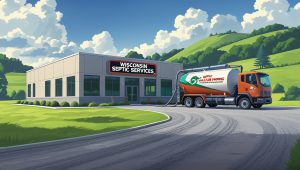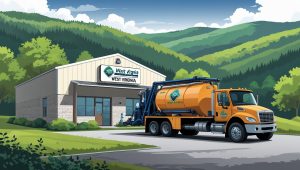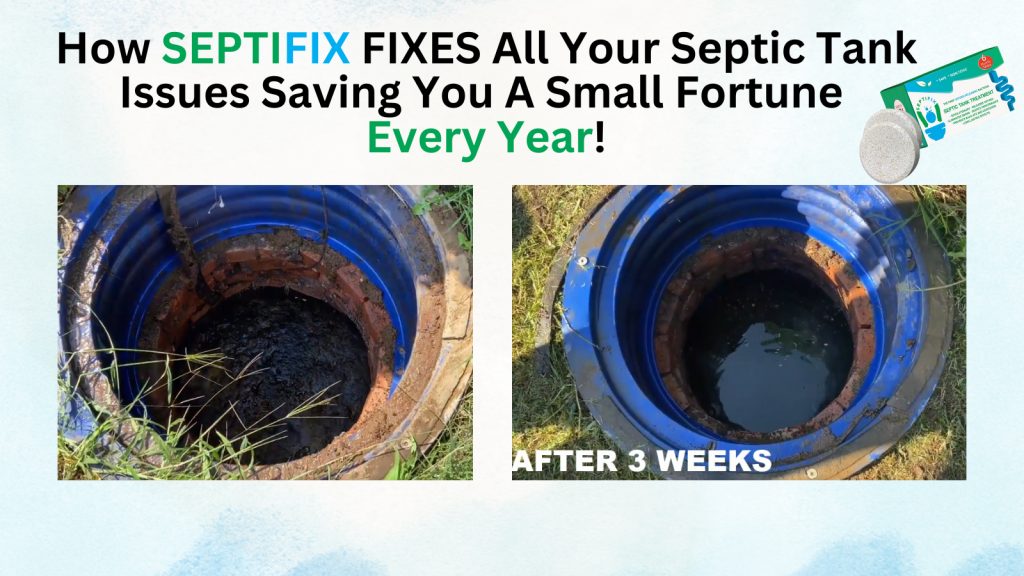Septic systems are essential for homes without access to municipal sewage. However, they often emit unpleasant odors if not properly maintained. Odor issues can arise from high rainfall, system imbalances, or inadequate treatment. Using the right products for odor elimination is crucial to maintaining a healthy and fresh septic system. In this article, we’ll explore the best products available, how they work, and tips for long-term odor control.
Table of Contents
- Understanding Septic System Odors
- Types of Odor Elimination Products
- Top 5 Best Products for Odor Elimination
- How to Choose the Right Odor Elimination Product
- DIY Tips for Reducing Septic Odors
- Septic Permit Links by State
Understanding Septic System Odors
Septic system odors are not just unpleasant; they signal potential problems within the system. Understanding the causes of these odors helps in choosing the most effective solutions.
Common Causes of Septic Odors
- Bacterial Imbalances: A healthy septic system relies on bacteria to break down waste. Imbalances can lead to odor.
- High Rainfall: Excess water can disrupt the system, causing odors to escape.
- Clogs and Backups: Blockages prevent proper flow, leading to a buildup of gases.
- Poor Maintenance: Neglecting regular pumping and inspections often results in unpleasant smells.
Why Odor Control Matters
Odor control is essential for health, comfort, and property value. Prolonged exposure to septic odors may pose health risks due to harmful gases like hydrogen sulfide. Additionally, foul odors can make your home less enjoyable and lower its appeal to visitors or buyers.
Types of Odor Elimination Products
Not all odor elimination products are the same. Each type serves a specific purpose, so understanding them helps in selecting the right one.
Bacterial Additives
These products introduce beneficial bacteria to the septic system, helping break down waste and reduce odors. They’re eco-friendly and effective for maintaining bacterial balance.
- How They Work: Bacteria consume organic matter, preventing gas buildup.
- Best Use Cases: For systems with frequent odor problems or after heavy rainfall.
Chemical Treatments
Chemical treatments neutralize odors by breaking down gases. While effective, they must be used sparingly to avoid harming beneficial bacteria in the system.
- Advantages: Quick odor elimination.
- Cautions: Overuse can damage the septic system’s ecosystem.
Filters and Vent Solutions
Filters and vents specifically target escaping gases, providing a physical barrier or redirecting odors. They’re ideal for homes in high-rainfall areas where odors frequently surface.
Top 5 Best Products for Odor Elimination
Here’s a curated list of the best products for septic odor control, chosen for their effectiveness, eco-friendliness, and value.
1. SeptiFix Tablets
- Features: SeptiFix is an advanced septic tank treatment tablet designed to dissolve waste, eliminate odors, and improve system efficiency.
- Pros: Fast-acting, easy-to-use tablets, environmentally friendly.
- Cons: Slightly higher cost compared to basic treatments.
- Best For: Homes with persistent odor issues and maintenance needs.
2. Bio-Clean Bacterial Waste Treatment
- Features: Contains powerful enzymes and bacteria to break down waste.
- Pros: Environmentally safe, easy to use.
- Cons: Requires consistent application for best results.
- Best For: Homes with recurring bacterial imbalances.
3. RID-X Septic Treatment
- Features: Pre-measured monthly treatments packed with natural enzymes and bacteria.
- Pros: Affordable and widely available.
- Cons: Not ideal for severe odor problems.
- Best For: Preventative maintenance.
4. Septic Drainer Odor Neutralizer
- Features: Chemical solution for neutralizing gas odors.
- Pros: Fast-acting.
- Cons: May require careful handling.
- Best For: Quick odor fixes in emergencies.
5. Activated Carbon Vent Filters
- Features: Blocks odors at the vent point using activated carbon.
- Pros: Long-lasting, requires minimal maintenance.
- Cons: Higher upfront cost.
- Best For: High-rainfall regions.
How to Choose the Right Odor Elimination Product
Selecting the right product depends on your septic system’s needs, the severity of the odor problem, and environmental considerations.
Key Factors to Consider
- Septic System Type: Ensure the product is compatible with your system.
- Odor Severity: Severe problems may require chemical treatments, while mild odors might only need bacterial additives.
- Safety: Opt for eco-friendly products whenever possible.
- Ease of Use: Consider how frequently you’ll need to apply the treatment.
DIY Tips for Reducing Septic Odors
In addition to using products for odor elimination, following these simple tips can help minimize odors and keep your system healthy.
- Regular Pumping: Schedule septic tank pumping every 3-5 years, depending on usage.
- Monitor Water Usage: Prevent system overload by fixing leaks and spreading out water-heavy activities.
- Avoid Harsh Chemicals: Household cleaners can kill beneficial bacteria.
- Inspect Regularly: Check for signs of clogs or backups.
- Use Natural Solutions: Baking soda can neutralize minor odors without harming the system.
Conclusion
Managing septic system odors requires the right combination of maintenance and effective products. Bacterial additives, chemical treatments, and vent filters are all viable options for keeping your system fresh and odor-free. By understanding your system’s needs and choosing the best products for odor elimination, you’ll enjoy a healthier, more pleasant environment.










